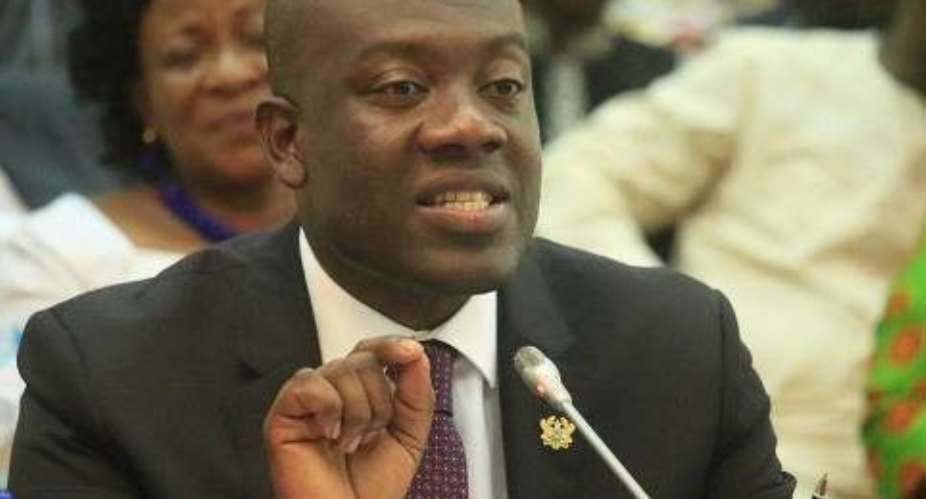It’s come and gone, but the vetting of ministerial nominees of the new government did not merely reveal the temperament and potential competence of the nominees. It more importantly, provided opportunities to renew insight and enhance our foresight as we endeavor to develop more productive strategies for efficient governance and true national development. One such opportunity was the perspective the now deputy minister for information, Kojo Oppong Nkrumah, presented on the issue of attitudinal change.
During the May Day ceremony at the independence square recently, the President was bold enough to address the lackadaisical attitude of public sector workers. It became the talk of the town, and the Media went frenzy for a while over it. Yet the issues His Excellency raised are at the core of the low productivity that has bedeviled our beloved Civil Service. But poor attitude towards work is not our only problem. We have a very bad attitude towards sanitation, law enforcement, morality, business and maintenance, inter alia. We seem to be laid back when it comes to high efficiency. We easily settle for mediocre results. Pastor Otabil Speaks about it, Arch Bishop Duncan Williams bemoans it, Presidents Mahama, Atta-Mills, John Agyekum Kuffuor and Jerry John Rawlings have all “lamented” over it in various ways. Yet, we seem to make very little head way.
Do you remember the campaign on Discipline waged by the late Vice President Aliu Mahama? We have virtually accepted the label of “the country with good laws but bad enforcement; the national with fine policies but faint implementation”. We seem to like to be called hospitable and hollow. But we should not. Rather, we should be hospitable and capable. Capable of protecting our environment; capable of implementing our many fine policies; and capable of enforcing our laws so that we can actually achieve true development and not spend all our post-independent era in mere aspirations.
When asked about his perspective on the need to raise awareness to promote attitudinal change in the way we do our things here in Ghana, Kojo’s response was, if measured, straight forward. He said: “unfortunately, I am not one of those who believe that we can correct ill habits in this country through education on attitudinal change; I am sorry if I disappoint anybody with my views but I do not share that view. Very often people know what is right; they refuse to do it. What we need is law enforcement when it comes to attitudinal change”.
He was courageous to differ from the general sentiment of conducting continuous public education to motivate attitudinal change. The way to go is to enforce the law. But didn’t we know this? In other places, the citizenry have developed a good attitude because the laws are effectively enforced. For example, if you jumped the traffic light, a camera will surely pick you up and you will face the law. They do this consistently until it is engrained in the psyche of the driving public.
So, why don’t we enforce the law? We seem to love inordinate convenience. Law enforcement has consequences, including the incarceration of family, friends and political heavy weights. But law enforcement inures for the greater good including those we sought to protect by scaling above the law. Therefore, as a people we should be open to enforcing the law. The process of proper enforcement will reveal any weaknesses that need to be corrected in the legislation to make the laws more efficient. Law enforcement agencies should be provided with the technical and professional capacity they need to carry out their work without fear or favour and they should be under the scrutiny of the public eye.
It may be interesting to know if the role of the Minister for Monitoring and Evaluation, Dr. Anthony Akoto Osei who also is now a member of Cabinet, includes the monitoring of law enforcement agencies. Also we need to know when the specific duties and responsibilities of all our 100-plus ministers, chief directors and other public servants will be published so that they can be monitored for efficiency and productivity. This is one way to go towards real national development in the shortest possible time. It is an issue of leadership. We are watching. We encourage our leaders to be courageous and bold to lead, with a human face of course, and with the resolve that cannot be denied transformation. Do they pledge?





 Tuesday’s downpour destroys ceiling of Circuit Court '8' in Accra
Tuesday’s downpour destroys ceiling of Circuit Court '8' in Accra
 SOEs shouldn't compromise on ethical standards, accountability – Akufo-Addo
SOEs shouldn't compromise on ethical standards, accountability – Akufo-Addo
 Father of 2-year-old boy attacked by dog appeals for financial support
Father of 2-year-old boy attacked by dog appeals for financial support
 Jubilee House National Security Operative allegedly swindles businessman over sa...
Jubilee House National Security Operative allegedly swindles businessman over sa...
 Nobody can order dumsor timetable except Energy Minister – Osafo-Maafo
Nobody can order dumsor timetable except Energy Minister – Osafo-Maafo
 Mahama wishes National Chief Imam as he clock 105 years today
Mahama wishes National Chief Imam as he clock 105 years today
 J.B.Danquah Adu’s murder trial: Case adjourned to April 29
J.B.Danquah Adu’s murder trial: Case adjourned to April 29
 High Court issues arrest warrant for former MASLOC Boss
High Court issues arrest warrant for former MASLOC Boss
 Align academic curriculum with industry needs — Stanbic Bank Ghana CEO advocates
Align academic curriculum with industry needs — Stanbic Bank Ghana CEO advocates
 Election 2024: We'll declare the results and let Ghanaians know we've won - Manh...
Election 2024: We'll declare the results and let Ghanaians know we've won - Manh...
